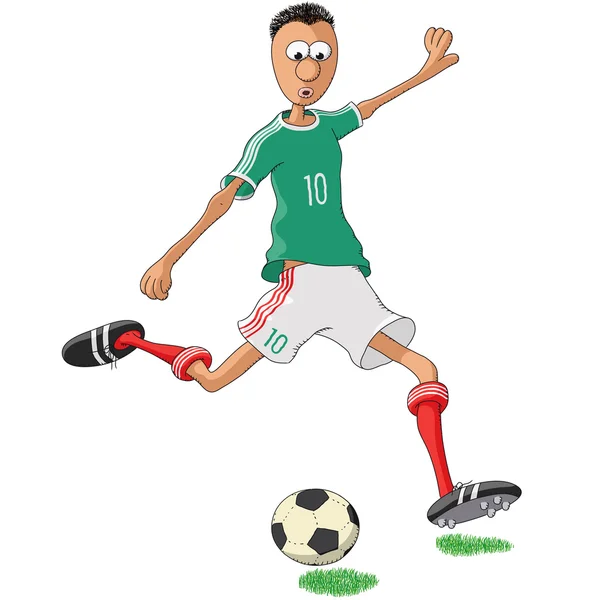Palabras del inglés que usamos en el español: ¡Dame un break! Los anglicismos
Hello friends
In these 5 minutes
of Spanish in the middle of the week we are going to talk about English words
that are commonly used in Spanish and accepted.
Yes, they are the so
called Anglicisms, all those related to the Internet, for example: e-mail; web
page; Ad Word; chat, mouse and others of very common use like: timer; sink;
grill, bowl.
In the kitchen for
example we use the sink for washing, the grill, the freezer, a closet and the
“bol”.
But let's look for some
Anglicisms that do not have a direct translation and are accepted by the Royal
Academy of the Spanish Language, for example:
Bar the
translation could be cantina, but there are differences between bar and
cantina.
There are many bars in
San Jose.
Club is an
association or society of people, but the word club of English origin does not
have a synonym in Spanish.
What a pity that the
clubs are closed because of the pandemic! I can't go and play “fútbol” (another
one, football), can I?
SpanishUp2U is a good club to practice Spanish.
Stress, can be translated as tiredness or nerves, but there is no one word in Spanish that defines how stress feels.
I'm very stressed
out lately, do you have any advice for this?
Stressed, I hadn't
noticed. I was told that for stress it is very good to meditate. Meditate a
little.
Names like rock,
pop, oldies. Yesterday I heard a lot of oldies on the Internet.
Bikini - clothing to go
to the beach
How does this bikini look on me?
Zas, I'm already in
trouble no matter what I say...
Stop, we stop the
conversation, it's better, right?
In sports like soccer
or golf the terms used are those of the English: swing, fairway, goal, fault,
referee, outside.
In soccer there
are terms in Spanish but often use the terms of English. For example: corner-
shot; “faul” - foul; they are used indistinctly in English or Spanish, of
course with the Spanish pronunciation.
Ride translation is
aventón, but nobody, absolutely nobody in the Baja California peninsula uses
aventón, it is called raite.
In other words, if
you see your neighbor walking with bags, she comes from the supermarket and her
car broke down. Kindly tell her, do you need a "raite"?
In other words,
there are many English words that are used in everyday Spanish and it is
correct to do so.
So it is easy to speak
in Spanish, we have many words in common in both languages.
It is clear that
English is a language that is spoken all over the world and that influences
Spanish a lot. In fact, it is almost impossible to have a conversation today,
without having to turning to some Anglicism.
But, let's look at some
terms of Spanish origin that were adopted by English. We will name some of
these Hispanisms. Not to mention proper names, fruits or vegetables, which will
be the subject of another 5 minutes.
Salsa- the one for
dancing and the one for eating.
Imelda dances salsa
very well, she has a lot of grace.
Canal - not the TV
channels but the detour of large amounts of water. This word perhaps
infiltrated with the construction of the Panama Canal.
Mosquito - that little
animal that bites and lives in places with water.
Adobe-
construction material
Tornado - Without a
doubt, the fact that many south-central states (hit by these natural disasters)
have been Spanish-speaking for a long time is the reason why this term is used
and not twister.
Padre - used not
as a relative who is used father, but to refer to the priest or padre of the
church.
Sierra - Although
difficult to pronounce, this word is used in English. And here are many saws
“Cafetería” -
cafeteria. - Perhaps for the good coffee of Latin America. The difference is
that it does not have a graphic accent and it is pronounced differently.
I like the old
cafeterias, with round tables and old pictures like the 50's.
Armada - to refer to
many warships. This word was added to the English after Spain sent them in the
SXVI the famous Grand Armada that they called the "Invincible Armada"
but that failed miserably ...well at least it left one word infiltrated into
the English.
Macho - Not
referring to the gender, but to the man who thinks he is super strong and
handsome. The usual macho man.
Other Hispanism can be:
embargo used in the right
Or “rancho” and “hacienda”,
At the “rancho” it is
good to have a “poncho” for when it is cold and a “sombrero” for the sun.
“Bandidos” can
come to the ranchos, and that's scary! We need to be “bravos”.
The Hispanicism that I
like the most is: siesta
I don't know why
you like that word...
There are many more. Do
you know any other Anglicisms and Hispanisms?
How about sending us an
e-mail with your list? Or writing a post on Facebook?
Thank you very
much for getting here in this podcast or audio.
We say goodbye,
bye-bye or better yet we say goodbye with a word of Italian origin that we use
in Spanish - Chau.
Chau, Chau, see you
soon.
Versión en español
¿Qué tal amigos? /
Malena- Eduardo
En estos 5 minutos de español en la mitad de la semana
vamos a hablar de palabras del inglés que se usan comúnmente en el español y
están aceptadas.
Sí, son los llamados anglicismos, todos los
relacionados con Internet, por ejemplo: e-mail; página web; Ad Word; chat,
mouse y otras de uso muy común como: timer; sink; grill, bol.
En la cocina por ejemplo usamos el sink para lavar, el grill,
el freezer, un closet y el bol.
Pero vamos a buscar algunos anglicismos que no
tengan una traducción directa y que están aceptados por la Real Academia de la
Lengua española, por ejemplo:
Bar la
traducción podría ser cantina, pero hay diferencias entre bar y cantina.
Hay muchos bares en San José.
Club es una
asociación o sociedad de personas, pero la palabra club de origen inglés no
tiene un sinónimo en el español.
¡Qué lástima que los clubes están cerrados por la
pandemia! No puedo ir a jugar fútbol (otra, fútbol). ¿Verdad?
SpanishUp2U es un buen club para practicar español.
Estrés, puede traducirse como cansancio o
nervios, pero no hay una palabra del español que defina como se siente el
estrés.
Estoy muy estresada últimamente, tienes algún consejo para
esto.
Estresada, no me había dado cuenta. Me dijeron que para el estrés es muy bueno meditar. Medita un poco.
Nombres como rock,
pop, oldies. Ayer escuché muchísimos oldies en Internet.
Bikini- prenda de vestir para ir a la playa
¿Qué
tal me queda este bikini?
Zas, ya estoy en problemas diga lo que diga….
Stop, paramos la conversación, es mejor ¿verdad?
En deportes como fútbol o golf los términos que
se utilizan son los del inglés: swing, fairway, gol, fault, referi, outside.
En el
fútbol existen los términos en español pero muchas veces se utilizan los
términos del inglés. Por ejemplo:
corner- tiro de esquina; faul - falta; Se utilizan indistintamente en
inglés o español, claro que con la pronunciación en español.
Ride la traducción es aventón, pero nadie,
absolutamente nadie en la península de Baja California usa aventón, se dice
raite. O
sea que, si ves a tu vecina caminando con bolsas pues viene del súper y se le
rompió su carro. Amablemente, le dices, ¿necesitas un “raite”?
O sea que hay muchas palabras del inglés que se usan en el
español de todos los días y es correcto hacerlo.
Entonces es fácil hablar en español, tenemos
muchas palabras en común en ambas lenguas.
Es claro que el inglés es una lengua que se habla en todo
el mundo y que influye mucho en el español. De hecho, es casi imposible
mantener una conversación hoy día, sin tener que recurrir a algún anglicismo.
Pero, vamos a ver algunos términos de origen
español que fueron adoptados por el inglés. Nombraremos algunos de estos
hispanismos. Sin mencionar nombres propios, frutas o vegetales, que será tema
de otros 5 minutos.
Salsa- la de
bailar y la de comer.
Imelda baila muy bien salsa, tiene mucha gracia.
Canal – no los canales de televisión sino
la desviación de grandes cantidades de agua. Esta palabra tal vez se infiltró
con la construcción del canal de Panamá.
Mosquito
– ese
animalito pequeño que pica y vive en lugares con agua.
Adobe- material de construcción
Tornado-
Sin
duda, la gran cantidad de tiempo que muchos estados del centro-sur de EE UU
(azotados por estos desastres naturales) han sido hispanohablantes, es el
motivo por el que se usa este término y no twister.
Padre - usado no como familiar que se usa father,
sino para referirse al cura o padre de la iglesia.
Sierra
- Aunque
difícil de pronunciar se usa esta palabra en el inglés. Y aquí hay muchas sierras
Cafetería cafeteria. - Quizás por el
buen café de América Latina. La diferencia es que no lleva tilde y que se
pronuncia diferente.
A mí me gustan las cafeterías antiguas, con mesas redondas
y fotos viejas como de los años 50.
Armada- para referirse a muchos barcos de
guerra. Esta palabra se agregó al inglés después de que España les enviara en
el SXVI la famosa Gran Armada que llamaban la “Armada invencible” pero que
fracasó estrepitosamente …bueno al menos dejó una palabra infiltrada en el
inglés.
 |
| Armada Invencible |
Macho
– No
referido al género, sino al hombre que se cree súper fuerte y guapo. El machito
de siempre.
Otro hispanismo pueden ser: embargo que se usa en el derecho
O rancho y hacienda,
En el rancho
es bueno tener un poncho para
cuando hace frío y un sombrero para
el sol.
A los ranchos pueden llegar bandidos. ¡Uyy qué miedo! Necesitamos ser bravos.
El hispanismo que más me gusta a mí es: siesta
No sé por qué te gusta esa palabra….
Hay muchos más ¿Conocen algunos otros anglicismos
e hispanismos?
¿Qué tal si nos mandan un e-mail con su
lista? ¿O escriben un post en Facebook?
Muchas gracias por llegar hasta aquí en este podcast o audio.
Nos despedimos, adiós, bye-bye o mejor nos despedimos con
una palabra de origen italiano que usamos en español - Chau.
Chau, chau, nos vemos pronto.







Comentarios
Publicar un comentario